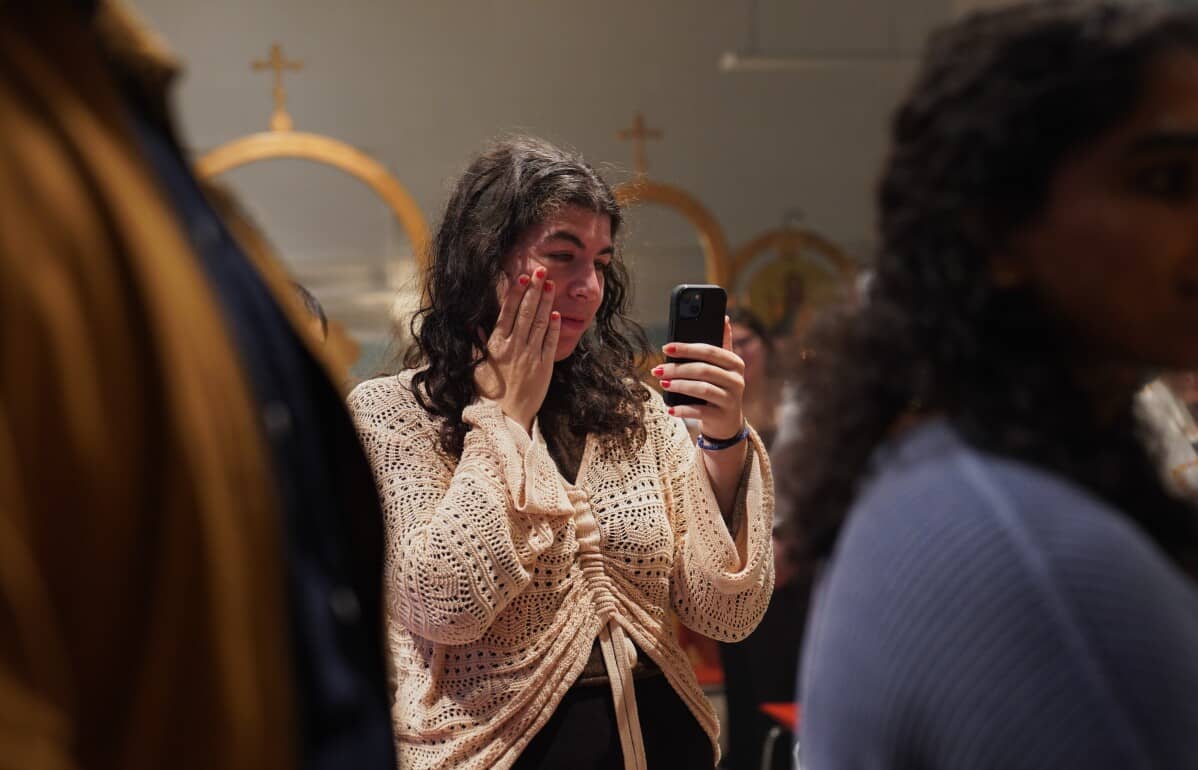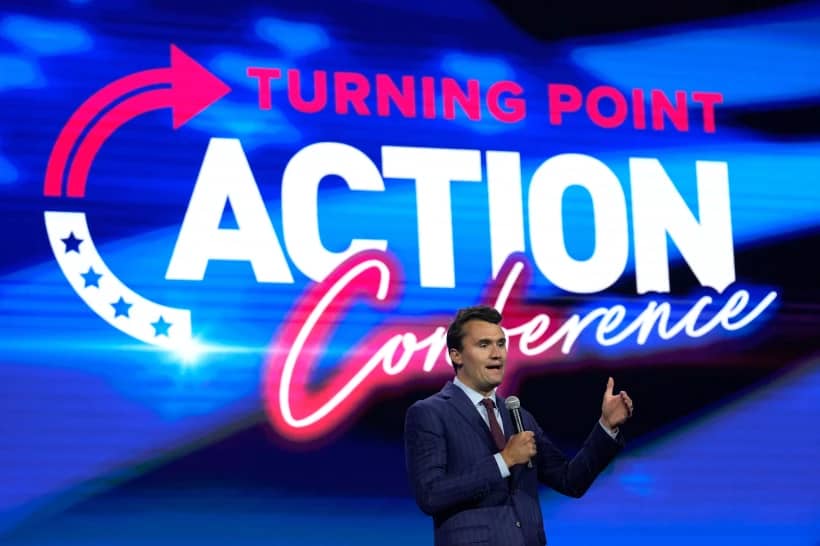With Catholic leaders calling it “profoundly troubling” and “disastrous, albeit cruel,” President Donald Trump’s newly released budget proposal faces stiff opposition, with some observers terming it “dead on arrival.”
Last Thursday, Democrats and even some Republicans were quick to point out problems with the president’s budget proposals released on Tuesday, as well as a Congressional Budget Office (CBO) score presented on Wednesday of the House of Representatives’ recently passed American Healthcare Act (AHCA).
Senate majority leader Mitch McConnell was measured in his assessment of the budget, saying that while the budget is a recommendation, “we’ll be taking into account what the president is recommending but it will not be determinative in every respect.”
House speaker Paul Ryan was much more enthusiastic, promising there were things all Republicans could get behind in the budget outline.
Some Republicans, such as Arizona Senator John McCain, went so far as to call the budget “dead on arrival.” However, with Republicans in control of both houses of Congress and the White House, there is no way to know the course this bill will take.
Trump’s budget calls for large cuts to the State Department and international aid, as well as a $191 billion reduction to food stamps over ten years as well as other cuts to what remains of the social safety net.
As politicians had their talking points ready, Catholic groups in the U.S. were quick with theirs as well.
On Tuesday, Bishop Frank J. Dewane of Venice, Florida, chairman of the USCCB’s Committee on Domestic Justice and Human Development, said the budget is a “moral document” and that “the proposed sharp increases in defense and immigration enforcement spending, coupled with severe reductions to non-defense spending for the poor, is profoundly troubling.”
Dewane worried about the substantial cuts to programs meant to help the poorest of society. Combining that with such a large increase in an already huge defense budget, “it is hard to reconcile.
“We cannot balance the budget on the backs of the poor,” Dewane said. “The moral measure of the federal budget is how well it promotes the common good of all, especially the most vulnerable.”
The USCCB had released a letter outlining their concerns the day before the budget was officially released. The letter was clear that anti-poverty programs should not be cut especially to “achieve savings.” It was also concerned about substantial increases to defense spending and immigration enforcement as well as cuts to international programs.
The letter states, “When the impact of other potential legislative proposals, including health care and tax policies, are taken into account, the prospects for vulnerable people become even bleaker.”
As CNA reported, Catholic Relief Services was also nervous about the large cuts to development programs and diplomatic efforts. Bill O’Keefe of CRS said, “the danger is that problems elsewhere ignored today become the expensive strategic challenges our military has to address tomorrow.”
Sister Donna Markham, O.P., president and CEO of Catholic Charities, USA questioned the wisdom of what she called “the disastrous, albeit cruel, cuts to anti-poverty programs such as SNAP, Medicaid and jobs training.”
Markham said that these large cuts “will have a devastating effect on millions of vulnerable individuals and families who depend on them.”
Catholic groups focused on the environment such as the Catholic Climate Covenant worried about the draconian cuts to the EPA also focusing on the injury to the poor caused by the proposal. People living in poor communities are more affected by pollution.
The only items in the budget and the AHCA that seemed to draw praise from Catholic groups were the cuts to Planned Parenthood and the redirecting of those funds to community health centers.
As far as the budget being ‘dead on arrival,’ many thought the second version of the Republicans’ AHCA, a very unpopular bill, was doomed. It passed, albeit by a slim margin, and although Republican senators say they’re making substantial changes to the bill, they’re also feeling enormous pressure by the administration to repeal the ACA, otherwise known as Obamacare
After the passage of the AHCA, Republicans celebrated with Trump at a ceremony in the White House’s rose garden after they walked through protesters screaming, “Shame on you!” After that photo op, they celebrated with a beer party.
Some Republicans are now rethinking those optics, especially with the release of the CBO score.
After the vote, they returned to their districts to be met by some very angry voters. One congressman from Idaho who voted for the bill, Raul Labrador, told a crowd that nobody ever died because they were denied access to healthcare. That comment was met with boos and roars of derisive laughter and angry retorts.
Some admitted on camera that they hadn’t read the bill before voting for it, and many went on shows and gave out very misleading information about what they had passed. Rep. Jeff Denham of California, facing angry constituents at a town hall meeting, said that the bill was “bipartisan…both parties working together.”
That seemed a strange assertion, given that no House Democrats voted for the bill and the Democrats were very vocal about not being included in any of the meetings.
All of that happened before the CBO score was released. It features such bullet points as 14 million more people will be uninsured next year, and 23 million more by 2026 than if the ACA remained law.
Many Republicans, however, are focusing only on the part of the report which says the legislation could reduce the federal deficit by $119 billion over a decade.
After learning that the CBO’s report disputes the Republican claim that high risk pools will allow people with pre-existing conditions to get coverage if states use the mandate waivers the Freedom Caucus pushed into the bill, the head of the Freedom Caucus, Mark Meadows teared up and said he wanted to fix that.
“The Senate cannot just dicker around with it a little bit and then say, ‘We fixed the worst parts of it,’” America Magazine quoted Sister Carol Keehan of the Catholic Health Association as saying May 25.
“It is really important to understand that this bill is so incredibly flawed, there is no fixing it,” Keehan said,
The USSCB responded to the bill’s passage with a statement making it clear that it was disappointed with many elements of the bill, especially the gutting of Medicaid.
“Even with efforts to improve the bill before passage, the American Health Care Act still contains major defects, particularly regarding changes to Medicaid that risk coverage and affordability for millions,” the bishops said.
Keehan minced no words when she told Crux that the bill was “unconscionable.”
The cuts to Medicaid, the waivers to states for the benefit of insurance companies in charging much more for pre-existing conditions and underwriting, and the tax cuts for the wealthy are topics the U.S. Senate must now take up in their own version of the bill. Keehan said part of the problem is that they and groups like them were not consulted by House Republicans.
One key division between Catholic groups and Senate Republicans is that while the Church wants to see the most possible people insured and are focused on expanding current coverage, Republicans for the most part are focused on lowering taxes, which will mean fewer will be covered.
Ryan, in defending the legislation, said that now people will be free to choose if they want health insurance or not. The bishops and other Catholic groups argue from the position that it is a question of affordability rather than a choice to have it.
The desire to cut Medicaid both in the AHCA and Trump’s budget is also something which will not garner support of Church leadership or Catholic aid groups helping the poor.












